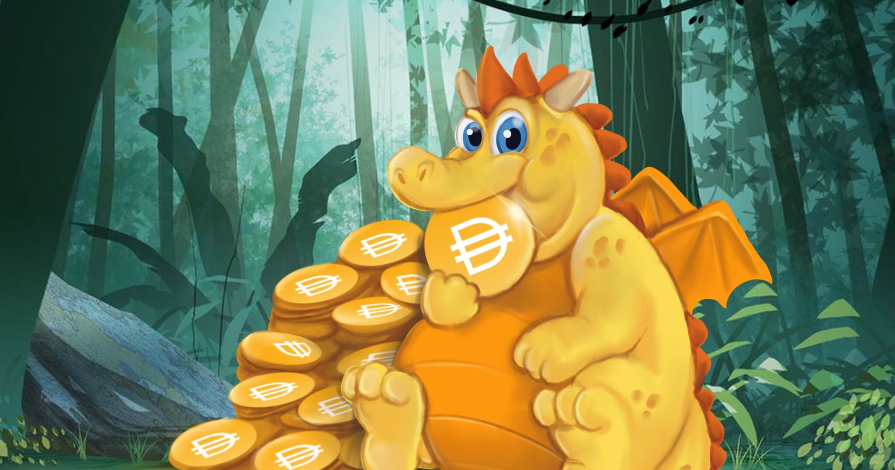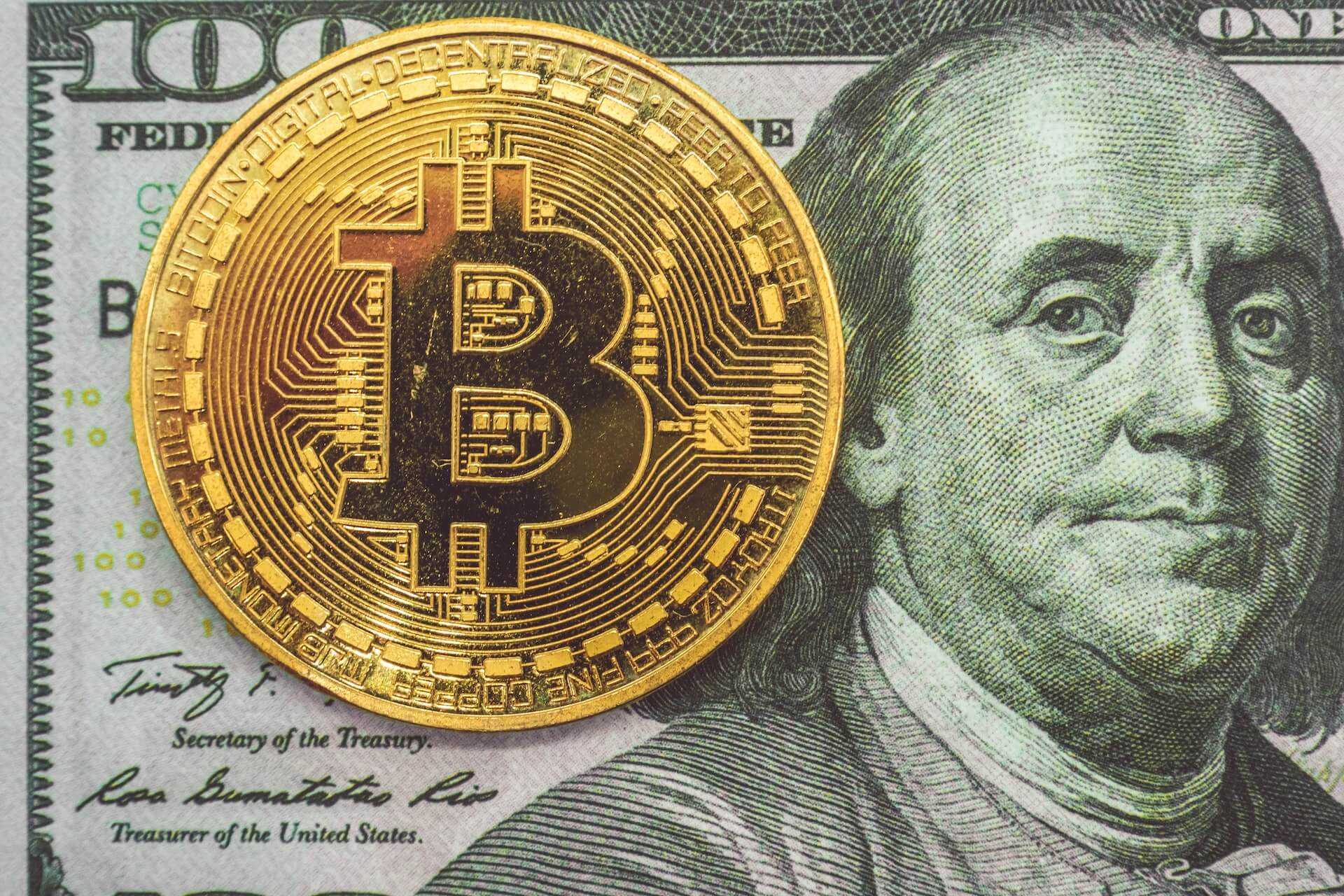
What Is Cryptocurrency — And Why Does Everybody Deserve to Own It?
[ad_1]
Cryptocurrency is a new kind of digital money that is entirely controlled by its owners. Beyond the reach of governments and intermediaries, it enables peer-to-peer trade, direct payments, savings and much more. It is money for the people, and the more people who own and use it, the more useful it becomes.
Introduction
Cryptocurrency is peer-to-peer digital cash. In other words, money that can be controlled and stored solely by its owner and used for online and in-store payments.
But cryptocurrency is also much more than digital money: some cryptocurrencies are designed for specific purposes such as saving, lending, trading, and yield generating.
In this guide, we’ll consider:
- The definition of cryptocurrency
- Its origins and most popular use cases today
- The main types of cryptocurrency and how they are used
- Why cryptocurrency is so precious – and why everyone deserves to own it
What is Cryptocurrency?

Cryptocurrency is money that cannot be taken without its owner’s permission. In other words, it can’t easily be frozen, seized, or inflated, and it is beyond the control of any government or company. This is particularly true of Bitcoin, the world’s first and best known cryptocurrency.
Much of the world’s money is now digital, with citizens’ savings represented in online accounts maintained by banks and payment companies such as Visa and Mastercard. Account balances are denominated in the fiat currency of the country in question e.g. dollars in the US and euros for countries in the EU.
There are many benefits to having a single unit of account for the purposes of payments, settling bills, and trade. But fiat currency has its disadvantages. It can be inflated or debased by governments, who can issue it at will while incurring huge national debts through financial mismanagement and excess. Cryptocurrency is the opposite and the antidote to this.
How Cryptocurrency Works?
Cryptocurrencies such as Bitcoin are immune from arbitrary inflation. Bitcoin’s supply is fixed and knowable: anyone can check the number of bitcoins in circulation, and can have faith that the total scheduled supply – 21 million coins in the case of Bitcoin – will never be exceeded. This is because the rules governing cryptocurrency are enforced by code rather than the whims of world leaders. Cryptocurrency may have been created and maintained by people, but it is machines that do the work of enforcing its rules and transmitting coins to other network participants.
This is achieved using a distributed network of computers, each of which holds a record of the ledger – that is, the current status of all account balances and activity on the network. These computers, which run special software, communicate with one another to relay information regarding new transactions. Then, each computer – or node – updates its version of the ledger, to ensure that it matches that of every other computer on the network.
The Birth Of Crypto
Cryptocurrency as we know it was invented by a pseudonymous developer called Satoshi Nakamoto in 2008. Although derived from existing technologies, such as public key cryptography, Nakamoto’s breakthrough was to solve the “double spend” problem.
Essentially, Bitcoin’s creator found a way to prevent coins from being spent simultaneously in more than one transaction. This was achieved using a system called Proof of Work, in which miners – people running computers that verify network activity – must solve a complex mathematical problem to earn the right to add new transactions to the shared ledger. The effort and resources involved in doing so make it impossible to add conflicting transactions to the blockchain – i.e. the record of newly appended blocks containing transactional data.
When the network Nakamoto designed went live in 2009, it pioneered a new system for transferring wealth globally. Anyone can buy, sell, send or receive Bitcoin using a laptop or smartphone with a basic wallet application.
Because there is no central point of control, Bitcoin is often referred to as permissionless and decentralized. It is the first truly global money that is not controlled by any nation state or other entity.
Bitcoin is by no means the only form of cryptocurrency, of course. Hundreds – and eventually thousands – of digital currencies have been released since Bitcoin debuted in 2009. Many of these perform a similar function to Bitcoin, but have additional features.
Monero, for example, is designed to support private transactions, and provides greater anonymity, while Ether – the native currency of Ethereum – can be used to pay for computational resources, such as interacting with decentralized applications. We’ll examine some of these cryptocurrencies in more detail later in this guide.
While the use cases and design of various cryptocurrencies differs, they broadly share the following characteristics:
- Predetermined supply that cannot be arbitrarily inflated
- Beyond the control of central parties including governments and companies
- Transactions and wallet balances can be viewed by anyone on a public ledger
- Can be sent peer-to-peer without going through intermediaries (e.g. payment processors)
- Cannot easily be seized or frozen
How Cryptocurrency Is Used Today
Cryptocurrency today is used by people from all walks of life and of all socio-economic backgrounds. The beauty of user-controlled digital cash is that it fulfills a wide range of roles.
Crypto can be used as a means of exchange, such as paying for goods and services online and in-store…
…It can be used as savings account for placing assets beyond the reach of third parties.
…It can be traded for other cryptocurrencies and fiat-pegged tokens known as stablecoins.
…It’s also popular for remittance – sending money to friends and family abroad – and is even now held as an asset by publicly listed companies.
From Venezuelan coffee growers to hedge funds and from privacy advocates to billionaire investors, crypto is used all over the world by all kinds of people.
Here’s how several of the most popular cryptocurrencies are utilized today:
- Bitcoin (BTC): Digital savings, censorship-resistant money, alternative asset (“digital gold”), reference currency for crypto markets, medium of exchange on P2P markets.
- Ether (ETH): Paying fees for interacting with smart contracts (i.e computational access), lending and borrowing via decentralized finance (defi), providing liquidity for decentralized trading, and for pairing against the many ERC20 tokens that have been issued on Ethereum.
- Tether (USDT): Crypto token pegged 1:1 with USD, used for moving money across the globe, as a base currency on cryptocurrency exchanges, and as a stable store of value.
- Monero (XMR): Medium of exchange on P2P markets including darknet sites. Also used for private transactions, wealth obfuscation, and as anonymous digital cash.
- Tron (TRX): Paying for network bandwidth and access to decentralized applications on the Tron network, as digital currency, and for defi services such as lending, staking, and yield farming.
This is just a small selection of the cryptocurrencies that are used on a daily basis by millions of people.
As you can see, the potential use cases for cryptocurrency are extensive – and we’ve barely scratched the surface.
Other cryptos have been designed to support decentralized governance, synthetic asset trading, cashflow generation, in-game trading of rare items and much more.
You don’t have to be a crypto expert to appreciate that cryptocurrency is a once-in-a-generation invention that is a genuine game-changer. While many of the use cases for crypto can also be performed by traditional assets such as cash, crypto adds certain characteristics that distinguish it from traditional financial products.
Why Everyone Should Own Cryptocurrency?
One of the greatest things about cryptocurrency is the communities that have formed around it and the people who have been drawn to it. Whether you’re part of the 1% or the 99%, there is value to be had in owning digital cash that can’t be seized and that has programmable scarcity, creating demand for it and incentivizing people to hold it as a long-term investment.
Digital Transformation
The world has gone digital, with events such as the coronavirus pandemic, and the shifting social and working behaviors it has triggered, accelerating this trend. We are rapidly moving to a cashless society in which most of our activity, from work to shopping, is performed online. At the same time, citizens have grown concerned at the intrusion into their digital lives by governments and tech companies, who seem intent on exerting control over how we interact and transact.
Empowerment
Cryptocurrency provides a way to capitalize on the shift to digital while mitigating many of its downsides; loss of privacy, censorship, and deplatforming. Just as no one can force you to use Bitcoin, no one can prevent you from using it either. It is an opt-in technology: and so far, hundreds of millions of people have made the decision to participate in the cryptocurrency economy.
Financial Alternatives
Owning cryptocurrency doesn’t mean abandoning your national currency and cutting up your credit cards: you can still interact with the financial rails and platforms you know and use on a daily basis. Rather, cryptocurrency provides an alternative option for those who mistrust the established financial system and the people governing it, and who would rather place their faith in math than in political leaders and bankers.
Censorship Resistance
Whether you value greater privacy over your financial affairs, an incentive to save money for a rainy day, or the ability to build a business that cannot be shuttered or censored, crypto provides the answer. With Bitcoin and similar cryptocurrencies, every transaction is considered equal: the network of computers that validates transactions cannot discriminate on the basis of age, gender, race, country, or wealth. This makes it the fairest form of money the world has ever known.
As casebitcoin.com concludes, “The combination of bitcoin’s properties as “digital gold”, its censorship resistance, and flexibility due to its digital nature make it a powerful tool for people to take direct control over their financial lives, and/or take refuge from inflationary central bank monetary policies. This is why some describe bitcoin as “a peaceful revolution”.”
How To Own Cryptocurrency?
If you’ve yet to purchase your first cryptocurrency, getting started is simpler than you think.
Payment platforms, neobanks, exchanges, P2P marketplaces, ewallets, and popular payment processors allow you to buy and sell crypto directly. At Kriptomat, you can buy cryptocurrencies such as Bitcoin and Ether using methods like credit card, SEPA bank transfer, Neteller, Skrill, and Sofort.
Check out our guide: “How to Buy Cryptocurrency and Keep It in a Secure Wallet”
Buying cryptocurrency today is quick and easy. Once you’ve purchased your first crypto and safely stored it, you’ll be ready to start exploring its many use cases and applications. Don’t be surprised if pretty soon you’re won over by its directness, transparency, and speed.
We believe that everyone will own at least some cryptocurrency, be it for investment, savings, or trading purposes.
And thanks to cryptocurrency’s fair and non-discriminatory design, everyone has the opportunity to decide how and when to begin accumulating crypto.
[ad_2]
Source link









